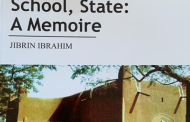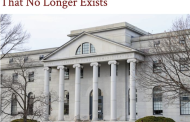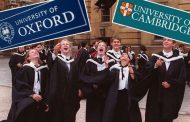The Middle Belt of Nigeria appears to be enacting a ‘textual turn’ in rediscovering itself. Later today, (April 30th, 2022), a Zoom session on the zone will be listening to a presentation on “A History of the Middle-Belt in Early Written Records”. That speaks to a belief that the zone is nothing but a product of textuality or how it has been ‘read’ by those who have read it. In the wake of the argument that there is nothing elsewhere outside of how an entity, (anything at all) is ‘read’ or understood, this might be the ultimate about-turn in Middle-Belt politics, arising from a superior self-understanding and identity direction informed by re-reading of history.

The fire-eating logo of the established front for the region although the Zoom session is the handwork of the Uniting the Middle Belt, (UMB)
Hitherto, the Middle-Belt has had a problematic self-understanding, almost solely posing itself as a victim of some other forces. Such self-representation has been interrogated by those who say that no encounters in inter-group interaction produce only victims. All such encounters produce victors and vanquished on both sides. Victimhood analysis does away with heroes and the victorious. Hence, the analogy that posting itself as victims of its Others has hitherto driven the Middle-Belt to not only deny heroism of its ideologues but to also fight other people’s battles.
This is the sense in which some observers are seeing today’s Zoom session as a departure. Interestingly, the resource person leading the discussion is an unusual person in terms of the intellectual sophistication to penetrate “written history of the Middle-Belt peoples of Nigeria from the 1700s even before the British colonized Nigeria”. The resource person in question is Dr. Phillip Hayab John.
According to the statement on the session made available to Intervention, Dr. Phillip Hayab John is introduced as a Principal Research Fellow at the Abuja based think tank, the Institute for Peace and Conflict Resolution, (IPCR). He holds a PhD in African Languages and Identity Studies from the University of Stellenbosch, a leading knowledge centre in South Africa. He also has postgraduate degrees in African Studies from the University of Ghana as well as Birmingham in the United Kingdom. As already mentioned, his quest for the linguistic roots and the etymology of certain words linked to the question of identity led have already led him to a treasure trove of written records. And it would thus be interesting to hear him out on what the text writers made of the area.
If there is nothing outside the text, making language-in-use the only pathway to truth, then this is, indeed, a strategic turn in Middle-Belt self-understanding and Middle-Belt politics, by implication.




























